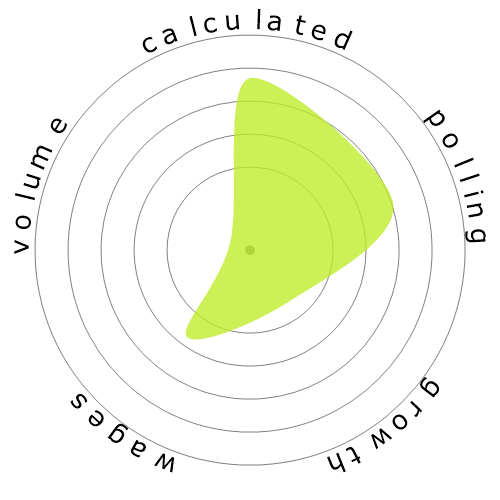Music Directors and Composers




People also viewed
Calculated automation risk
Low Risk (21-40%): Jobs in this level have a limited risk of automation, as they demand a mix of technical and human-centric skills.
More information on what this score is, and how it is calculated is available here.
User poll
Our visitors have voted there's a low chance this occupation will be automated. This assessment is further supported by the calculated automation risk level, which estimates 21% chance of automation.
What do you think the risk of automation is?
What is the likelihood that Music Directors and Composers will be replaced by robots or artificial intelligence within the next 20 years?
Sentiment
The following graph is included wherever there is a substantial amount of votes to render meaningful data. These visual representations display user poll results over time, providing a significant indication of sentiment trends.
Sentiment over time (yearly)
Growth
The number of 'Music Directors and Composers' job openings is expected to rise 2.7% by 2033
Total employment, and estimated job openings
Updated projections are due 09-2025.
Wages
In 2023, the median annual wage for 'Music Directors and Composers' was $62,590, or $30 per hour
'Music Directors and Composers' were paid 30.2% higher than the national median wage, which stood at $48,060
Wages over time
Volume
As of 2023 there were 10,770 people employed as 'Music Directors and Composers' within the United States.
This represents around < 0.001% of the employed workforce across the country
Put another way, around 1 in 14 thousand people are employed as 'Music Directors and Composers'.
Job description
Conduct, direct, plan, and lead instrumental or vocal performances by musical artists or groups, such as orchestras, bands, choirs, and glee clubs; or create original works of music.
SOC Code: 27-2041.00


Comments
Leave a comment
This is without taking into account all of the interpersonal elements of composition, which are also not well understood by people who don't do this work.
Finally, given that humans are subject to copyright law and that the level of imitation and inspiration from previous works is controlled and limited by these laws, it is unlikely that music created by AI that was not drastically reshaped by a human composer would avoid copyright lawsuits or be subject to copyright itself, as current technology in this field only knows how to aggregate and make stylistic choices based on probability. A human composer is not going to waste time fiddling with AI compositions to "get them there" when they could just write something themselves.
Show me an evangelist who actually produces music and isn't heavily invested in AI themselves in some way, and I'll reconsider.
bye bye dutse, hesh and koot
1. Which is understanding which part of what they created did a human like and thus may have trouble using reinforced learning.
2. Lyrics have meaning behind the words. Its much more complex than just a melody. Its these lyrics and building melody in combination with lyrics which is going to be rather difficult but not impossible. Lyric writing is going to be one of the Last things AI will be able to do.
https://www.youtube.com/watch?v=wYb3Wimn01s
Leave a reply about this occupation